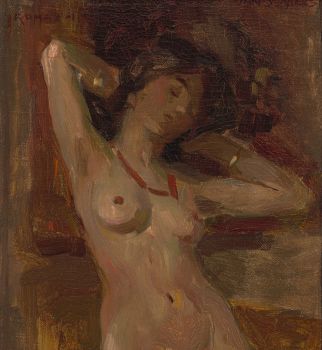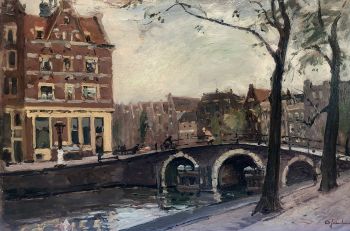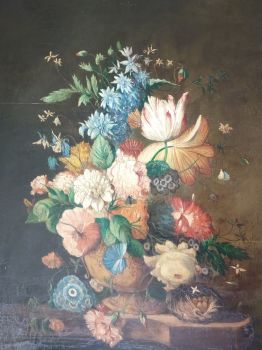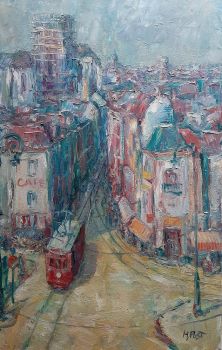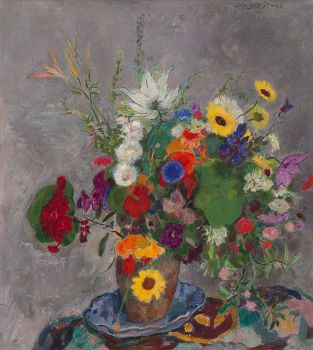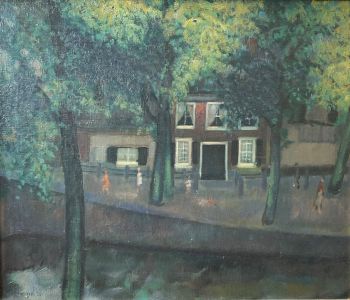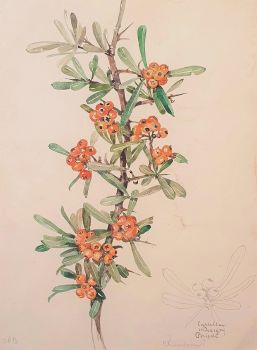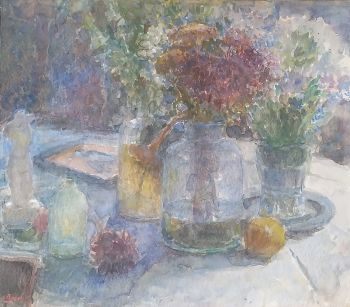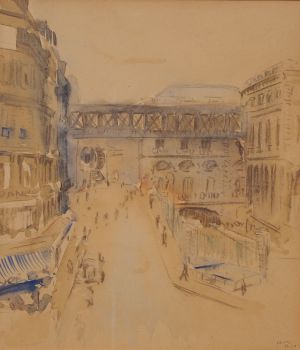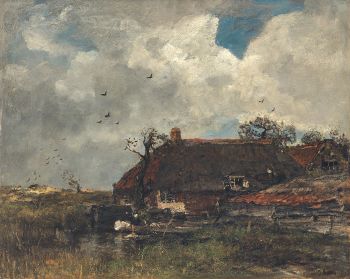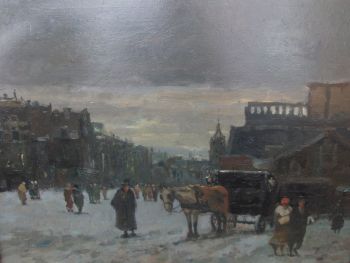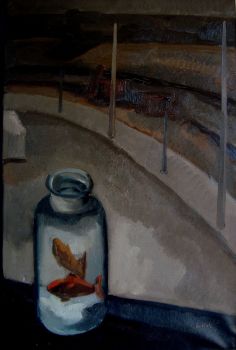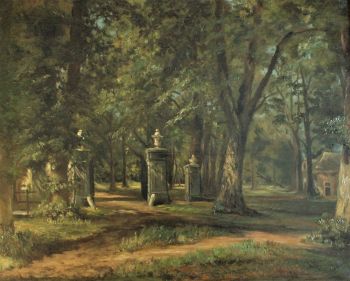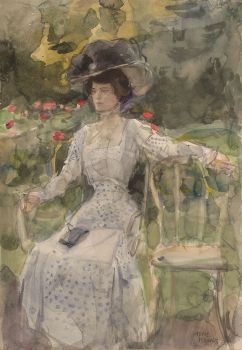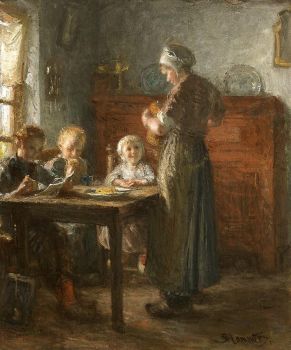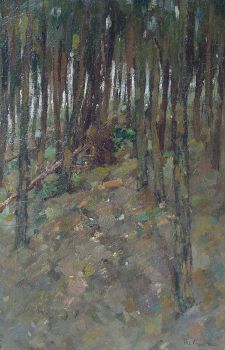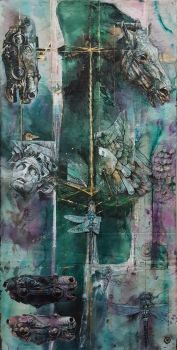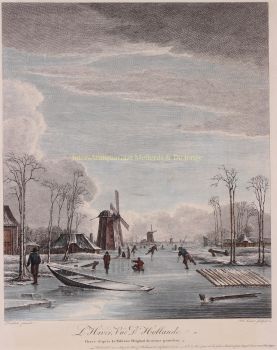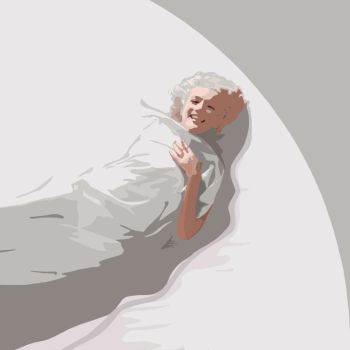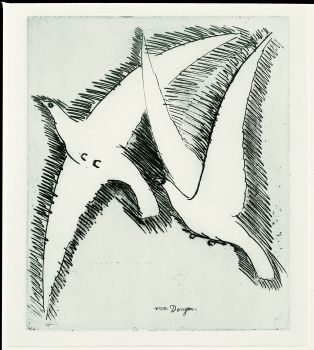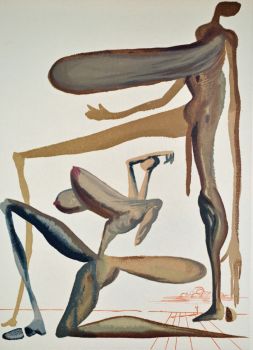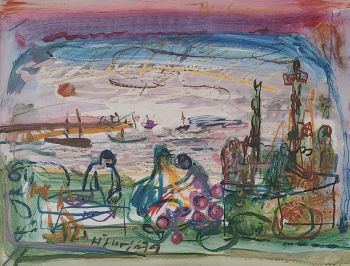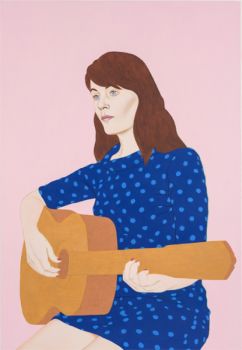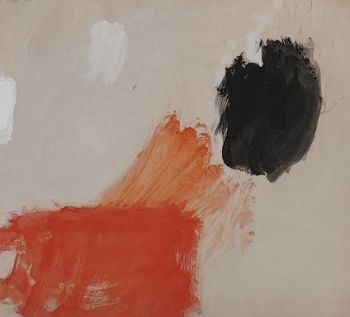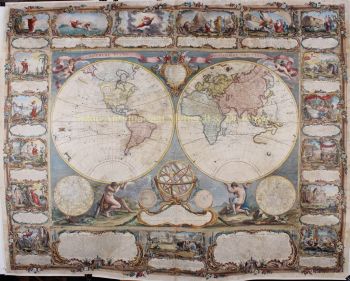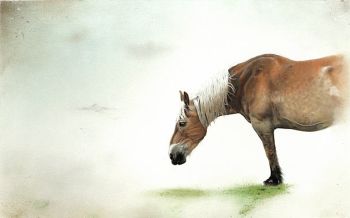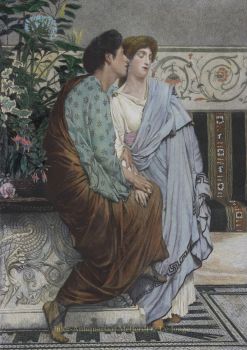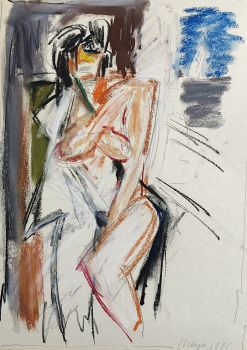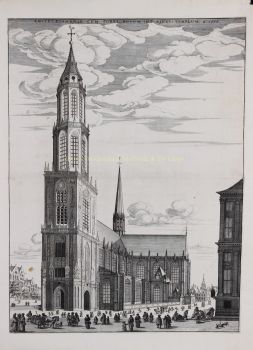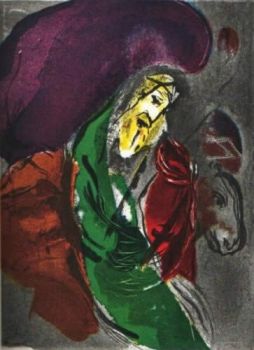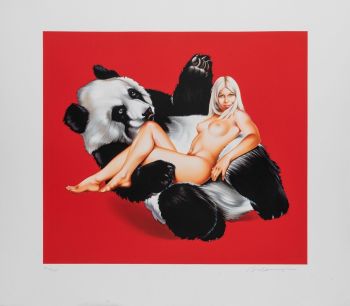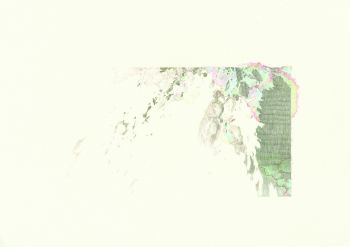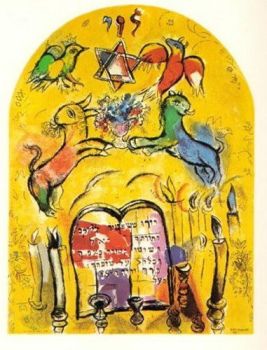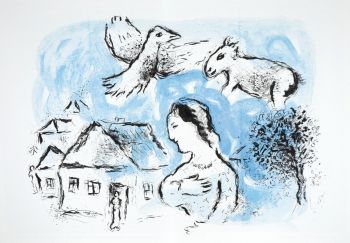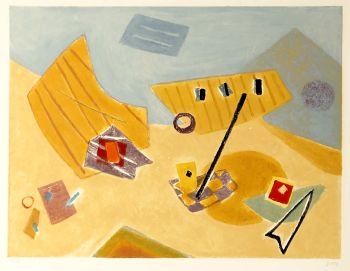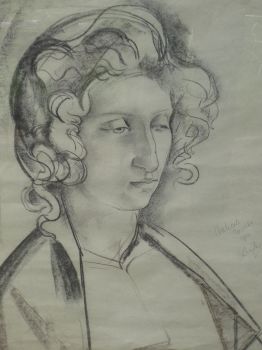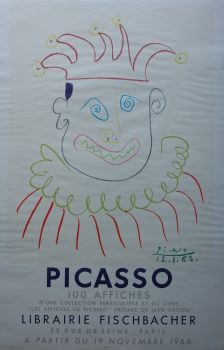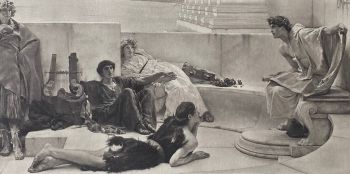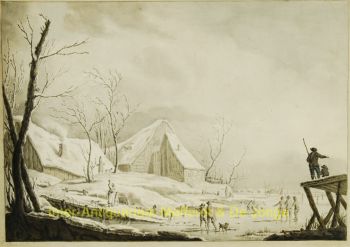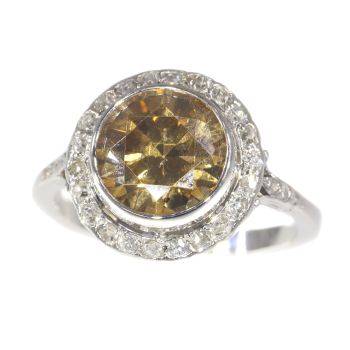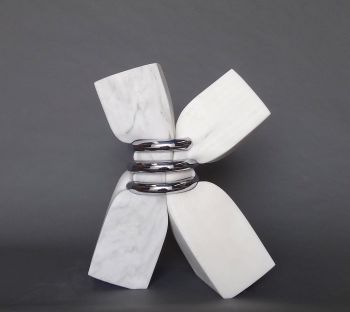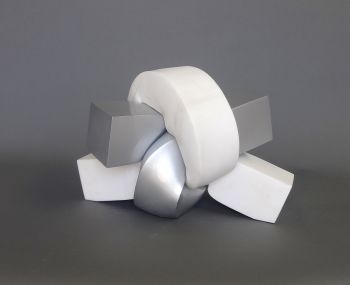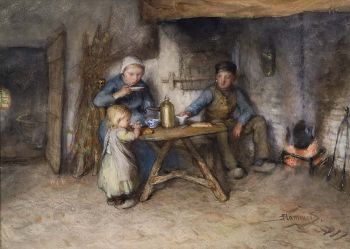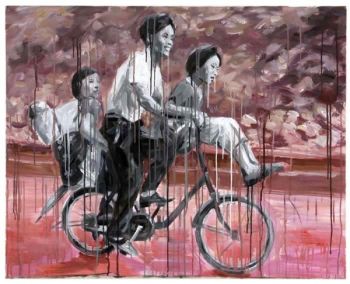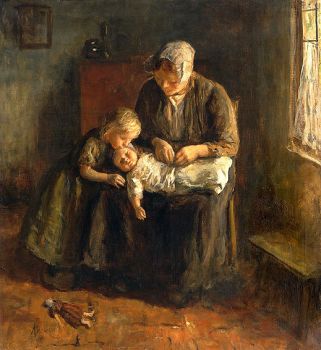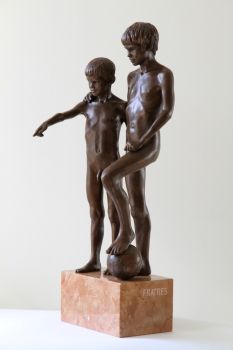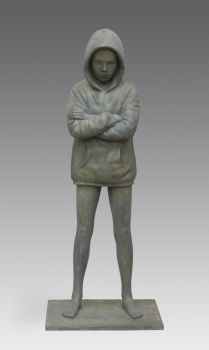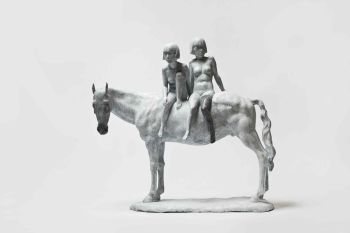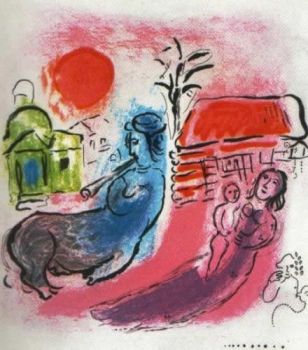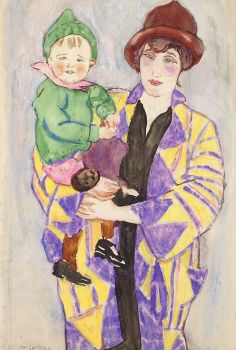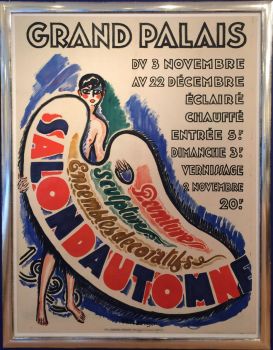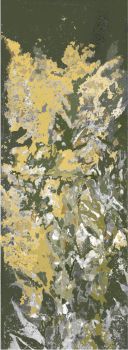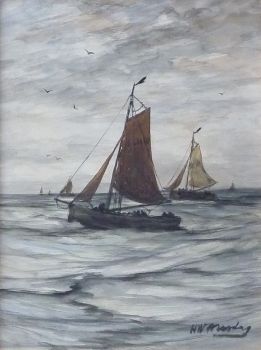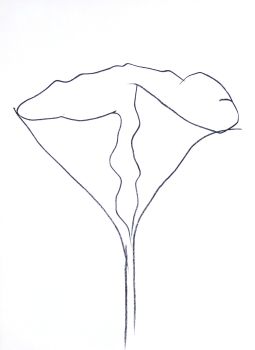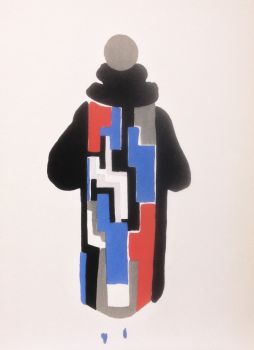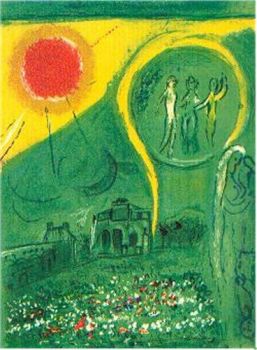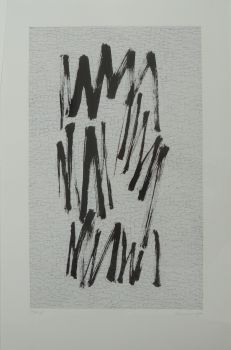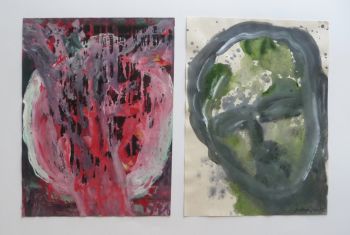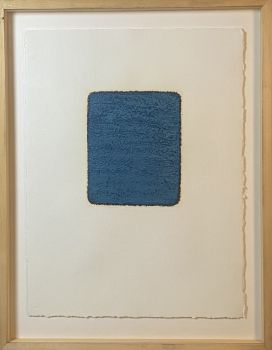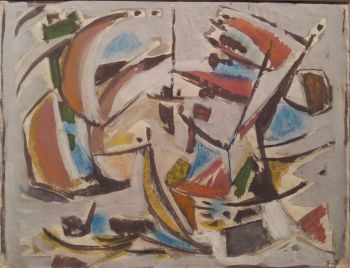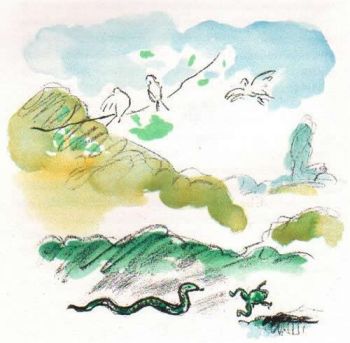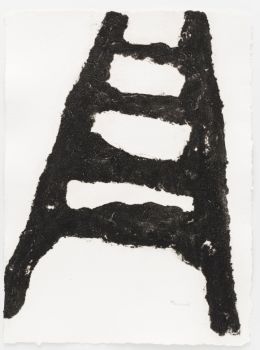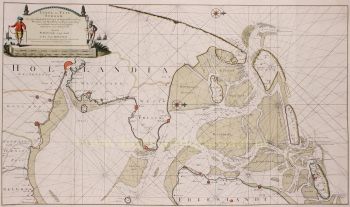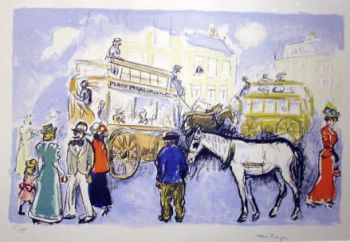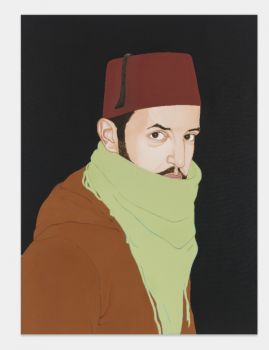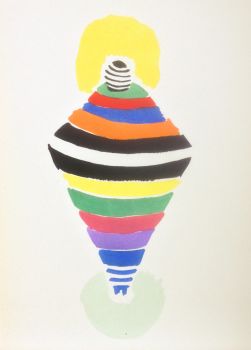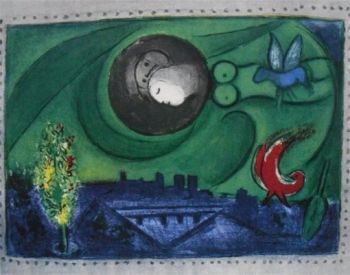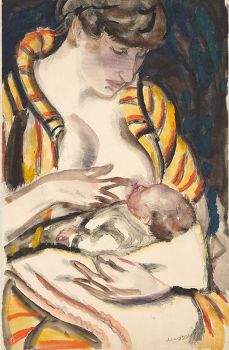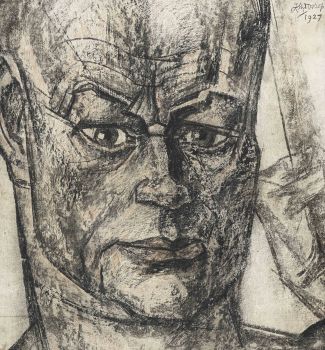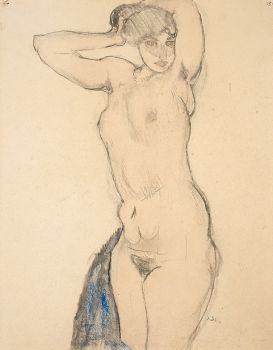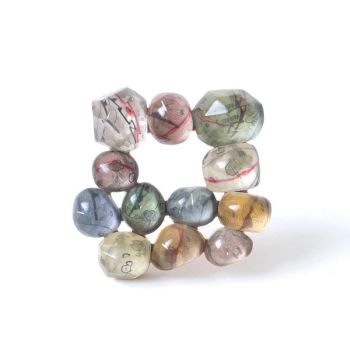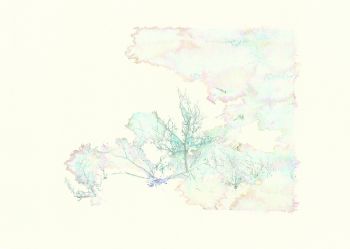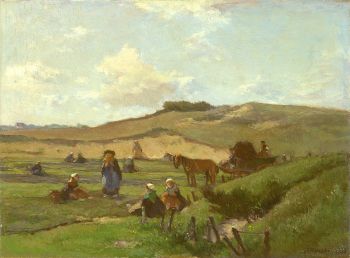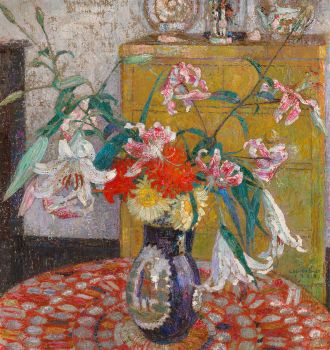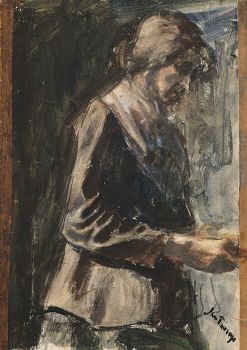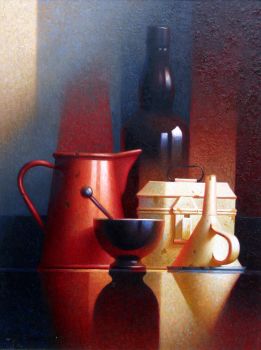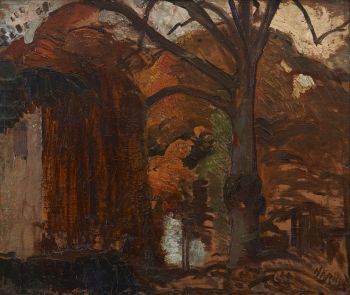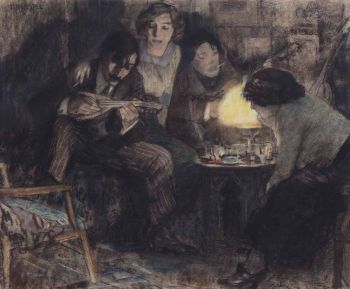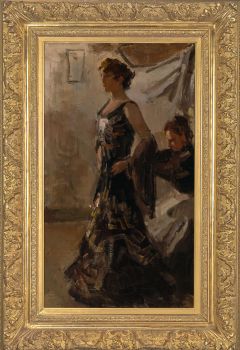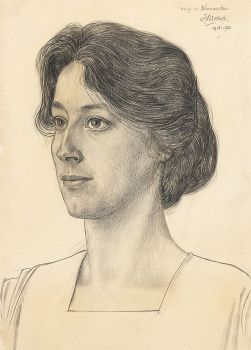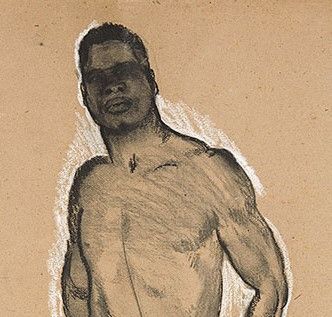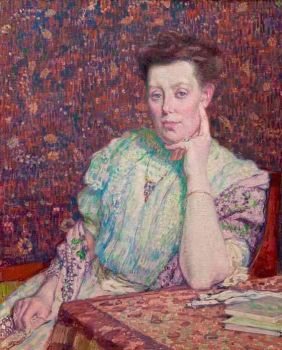"Het bruidspaartje" 1915
Marie (Rie) Cramer
PaperPencil
38 ⨯ 38 cm
Price on request
Studio 2000 Art Gallery
- About the artworkPotlood op papier
38 x 38 cm.
Gesigneerd: links onder ‘Rie Cramer’ - About the artistMarie "Rie" Cramer (10 October 1887 – 16 July 1977) was a Dutch writer and prolific illustrator of children's literature, whose style is considered iconic for the interwar period. For many years, she was one of the principal illustrators for the leading Dutch youth magazine, Zonneschijn (Sunshine). She also wrote plays under the pseudonym Marc Holman. Some of her work was banned during World War II due to its criticism of National Socialism, and she contributed to a prominent underground newspaper during the war.
Born in Sukabumi in what was then the Dutch East Indies, Cramer was the daughter of Hendrik Cramer, a ship’s captain, and Elisabeth Frederica Schenk. In 1896, she moved to the Netherlands with her mother and younger sister, settling in Arnhem. Encouraged by her artist aunt Gesine, she studied drawing there.
In 1904, her father rejoined the family in the Netherlands, and they moved to The Hague, where Rie studied at the Royal Academy of Art from 1905 to 1907. In 1913, she married lawyer Peter Otten, but they divorced in 1914. In 1922, she married actor Eduard Rutger Verkade; they divorced in 1933.
Cramer is best known for her numerous illustrations for children's books, some of which she authored. She also illustrated adult literature, including works by Shakespeare. Along with Anton Pieck, she was one of the main illustrators for Zonneschijn, a magazine that debuted in 1924 and was the most significant non-religious youth magazine in the Netherlands until it ceased publication in 1943. She also designed sets and costumes for theater productions and the Dutch pavilion at the 1939 New York World's Fair.
Cramer began her illustration career while still a student, influenced by illustrators like Edmund Dulac, Aubrey Beardsley, and Arthur Rackham, with a distinct Art Nouveau style. From the 1920s, her illustrations became more simplified and brighter, influenced by her work on stage costumes and sets. In the 1930s, she shifted focus to writing books for young adults and created art pottery with her friend Fransje Carbasius, whom she met at the Royal Academy.
During World War II, Cramer continued working as an illustrator and theatrical designer, writing two plays under the pseudonym Marc Holman. Two of her earlier works were banned by the Germans due to their anti-Nazi sentiments. She joined the resistance, helping fugitives and anonymously publishing anti-German verses in Het Parool, the largest underground resistance newspaper in the Netherlands. These verses were collected and published in 1945 as Verzen van verzet (Poems of Resistance).
After the war, her work was extensively translated into languages including English, German, French, and Danish. In 1954, she wrote a radio play in 42 episodes, the same year she moved to Mallorca, Spain, with a few women friends. There, she continued producing pottery and tiles and wrote three books about the island. In 1971, due to failing health, she returned to the Netherlands, where she died in 1977. Her work continues to be reprinted.
Alongside Henriette Willebeek le Mair and Nelly Bodenheim, Cramer is regarded as one of the most important Dutch women illustrators of children's books between the world wars. Despite her success, critics often viewed her style as rather static and sweet. Dutch writer Annie M. G. Schmidt recalled, "The illustrators of my youth were Rie Cramer and Daan Hoeksema. They poisoned fairy tales, youth corners, and children's magazines.... They gave no air, neither smelled nor scented, and they left open no doors, simply shut off every way out." Whether they appreciate her work or not, most critics agree that her illustrations are among the most iconic and defining of the era.
Are you interested in buying this artwork?
Artwork details
Related artworks
- 1 - 1 / 1
Anthonie Pieter Schotel
BOTTERS OP DE ZUIDERZEE MET DOOR HET WATER WEERKAATST ZONLICHT1920 - 1950
Price on requestGalerie Het Noorderlicht
Gijsbertus Jan Sijthoff
Interior scene with a woman doing needlework1890 - 1920
Price on requestVan der Aalst Fine Art
Johannes van Dreght
Antique Dutch still life flowers in vase1740 - 1800
Price on requestGallerease Selected
Bob Buys
Paris, Gare de L'Est, Passerelle de la Rue d'Alsace1940 - 1950
Price on requestAdelwein Kunst
1 - 4 / 24- 1 - 4 / 24
Bernardus Johannes Blommers
VADER EN MOEDER MET KIND AAN TAFEL1845 - 1914
Price on requestStudio 2000 Art Gallery
1 - 4 / 24- 1 - 4 / 24
Johannes Evert Akkeringa
'Nettenboetsters' in the Dunes1861 - 1942
Price on requestStudio 2000 Art Gallery
1 - 4 / 12



